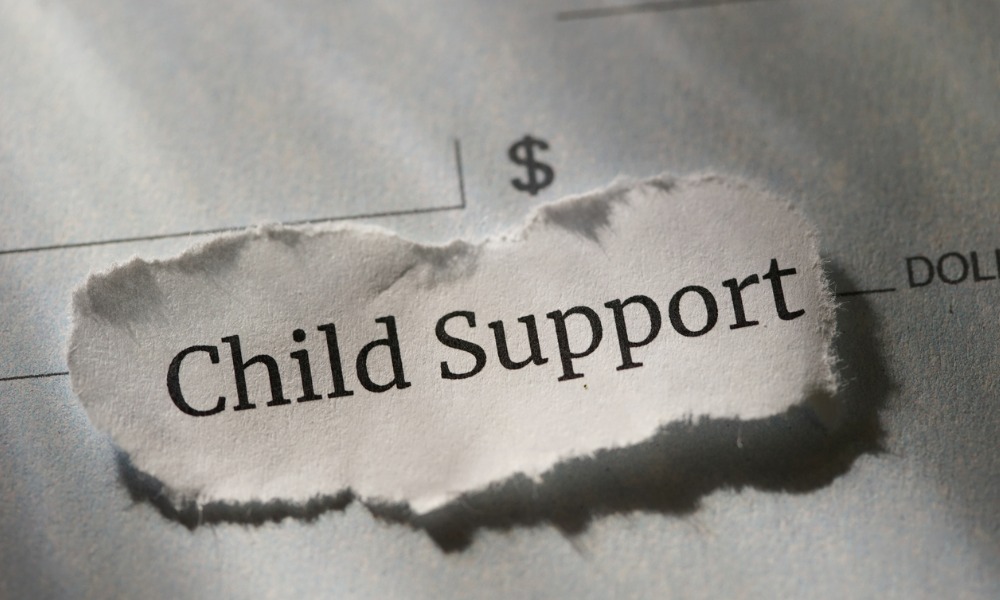
He intends to move to Costa Rica to avoid paying his child support obligation

The Ontario Superior Court of Justice recently decided to impute income to a father who was intentionally underemployed to avoid paying his child support obligation.
In Beaudoin v. Stevens, 2023 ONSC 4401, Patricia Beaudoin and Paul Stevens started living together in 2006 and separated in 2012. They have two minor children, Skylar and Brooklyn. Beaudoin and Stevens entered into a comprehensive separation agreement and an amending agreement.
The parties initially agreed that the children resided with them equally. However, the children started living with their mother full-time in late June 2018. Stevens had a significant argument with both children and kicked Skylar out of the home, which prompted the children to assert their preference to reside with their mother.
Beaudoin brought a motion before the Ontario Superior Court of Justice, seeking to change various separation provisions and amending income and support agreements. Among the issues that the parties asked the court to resolve are whether an income should be imputed to the father and does he owe retroactive child support.
The court noted that imputation of income is covered under the Child Support Guidelines. The court said that imputing income is a means by which the courts can ensure that parents meet their joint and ongoing obligation to support their children. It is a fact-specific exercise that turns on the circumstances of the case before the court.
Furthermore, the court acknowledged that regardless of the basis upon which income is imputed, the amount of income the court imputes to a party is a matter of discretion. However, there must be some basis in the evidence for the amount that the court has chosen to impute.
The court stressed that every party in a child support case must make full and frank financial disclosure of all matters relevant to properly determining other income for support purposes, including disclosure of all information required to assess the party's actual and potential earnings, efforts to maximize their earnings, and the appropriateness of any claimed deductions from their income.
After carefully reviewing the evidence, the court found that Stevens is intentionally underemployed. The court noted that he is capable of working. However, the court observed that he lacked credibility, was dishonest, and failed to produce court-ordered disclosure.
Furthermore, the court found that Stevens sent a message to Beaudoin, which confirmed his intention not to pay support. In that same message, the court observed that he also clearly intended to move to Costa Rica to avoid his obligation. Accordingly, the court concluded that Stevens is intentionally underemployed within the meaning of the Child Support Guidelines and the governing case law.
The court found that Stevens' lifestyle is not commensurate with his Line 150 income, based on a two-page 10-year Canada Revenue Agency income summary. The court observed that he unreasonably deducted expenses from his income. Stevens even admitted that he lied about the rental income he received in 2020 and that there were years he received rental income for which the court did not have sufficient information to determine the issue precisely.
The court also found that Stevens sold his home in Burlington, Ontario, but he chose to use the funds from the sale in a manner that benefitted him personally. Consequently, the court concluded that his property had not been reasonably utilized to generate income.
There were two detailed court orders requiring Stevens to produce disclosure. However, the court observed that very little disclosure had been produced before the trial. Additionally, despite producing some disclosure during the trial, Stevens remained substantially non-compliant with orders for financial disclosure by the end of the trial.
The court emphasized that despite his obligations under the Family Law Act and the Guidelines, and two court orders, Stevens did not produce the disclosure required to determine his income for child support purposes in the relevant years.
The court, citing case law, stated, "Courts have increasingly recognized that the payor's duty to disclose income information is a corollary of the legal obligation to pay support commensurate with income."
The court ultimately drew an adverse inference from Stevens' failure to provide information when under a legal obligation to do so. As a result, the court found it appropriate to impute income to him.
Furthermore, the court ordered Stevens to pay child support arrears. Considering that Stevens has made it clear that he has no intention of paying child support, the court also ordered a lien against Stevens' property in Honey Harbour to secure the payment of retroactive child support.